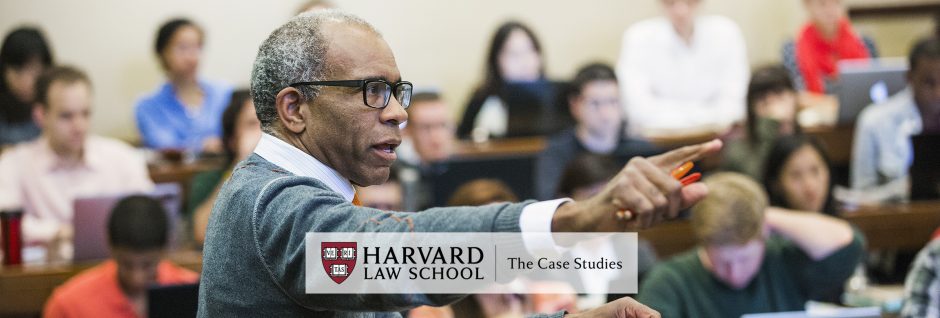
The Harvard Negotiation and Mediation Clinical Program has produced a new video resource on facilitation entitled “Police-Community Dialogue: A Facilitated Conversation Featuring Commentary with Harvard Law School Professor Robert C. Bordone”.
The resource, which can be purchased on HLS Case Studies, features an unedited facilitated dialogue as well as retrospective analysis and commentary with the two facilitators and Professor Bordone. “Police-Community Dialogue” also includes a detailed teaching note with discussion questions that educators can use in courses on facilitation, multi-party negotiation, consensus building and mediation, and workshops or training sessions on facilitating dialogue.
“We hope that this resource will help people not only in the realm of Police-Community relations, but also more broadly in cultivating the skills of facilitation that are so needed in today’s world,” says Professor Bordone.
The “Police-Community Dialogue” video resource provides a window into decisions that facilitators must make during challenging conversations. It is specifically created to support those who teach facilitation, those who serve as facilitators, and those who are interested in implementing group dialogue and public engagement in their communities or organizations.
One of the features that make this resource unique is its user-friendly structure: it can be watched all the way through or by chapter, based on specific topics in facilitation. Chapter Three of the resource, which focuses on establishing shared norms for a conversation, is available as a sample chapter for public viewing. The online platform for viewing the videos also includes an interactive forum where educators and facilitators who register for the resource can exchange ideas.
The first part of the video resource is the facilitated conversation as it occurred on July 9, 2016 in its unedited form. The second portion of the video is a conversation that Professor Bordone conducted with the two facilitators, Danielle Bart (Associate, Goodwin Procter LLP) and Toby Berkman (Senior Associate, Consensus Building Institute), weeks after the dialogue. In this second part, Professor Bordone interviews Toby and Danielle about the choices they made when preparing for the dialogue and at key moments in the dialogue itself. The purpose of the interview is to get into the minds of these skillful professionals, understand their facilitative choices, and reflect on various ways to handle challenging moments.
HNMCP began this video project in early 2016, months before the actual dialogue took place. The original invitation to dialogue participants asked them to reflect on their reactions to police community relations in the US since the shooting of Michael Brown and the events in Ferguson, Missouri in 2014. As it happened, the week before the scheduled Saturday taping in July of 2016, Alton Sterling was killed in Baton Rouge, Philando Castile was killed in Minnesota, and five police officers were killed in Dallas. During the week before the dialogue, these events gripped the nation and heightened the rawness that the eight participants brought to the filmed conversation.
Because the aim was to create a resource that would educate and inspire, Professor Bordone, along with Supervising Producers Sara del Nido Budish and Adriel Borshansky, made an intentional decision not to use actors and scripting. Everyone in the video—both participants and facilitators—is playing themselves in real time.
“We knew that hosting a real dialogue presented risks and would result in a video that would be less-than-perfect,” Professor Bordone says. “But we thought producing a video with flaws would be more useful to viewers than creating a ‘perfect’ video of dialogue. Even if the latter could be created with actors and good writing, we suspected that watching something that could never happen in real life would be, at best, largely academic and, at worst, a bit demoralizing since there is no such thing as a ‘perfect’ dialogue.”
This video resource is one project in a broad initiative that Professor Bordone and the Harvard Negotiation and Mediation Clinical Program are leading to reinvigorate genuine and challenging dialogue in public life. In response to increasing polarization in the American political landscape, the clinic has sought to expand its work related to political dialogue on issues that cut to the core of identity and belief. HNMCP began to develop its political dialogue initiative 2015 with the Real Talk series and the formation of the HLS Now Facilitation Corps in 2016. In the 2016-2017 academic year, the clinic led Harvard Community Dialogue, a series of dialogue sessions on pressing political issues: What is America? A Community Dialogue on National Identity and Immigration, The Press: Sensationalism, Ratings, and Responsibility, and Parties, Politics, and the Future of Healthcare in the United States. Professor Bordone and Assistant Director Rachel Viscomi spoke about creating opportunities for dialogue through difference on a widely-viewed Facebook Live event with the Harvard University Gazette. HNMCP also collaborated with HLS Admissions and the Dean of Students Office to facilitate dialogue on identity and lawyering for admitted students from traditionally underrepresented identities or groups. More broadly, HNMCP’s work has expanded its pedagogical focus on the theory and practice of facilitation. Professor Bordone and Rachel Viscomi offer The Lawyer as Facilitator workshop to students and in fall of 2016 they initiated a new reading group entitled, Political Dialogue in Polarizing Times: Election 2016.
Learn more about HNMCP’s work on political dialogue.
The Harvard Negotiation & Mediation Clinical Program is the nation’s first legal clinic focusing on dispute systems design and conflict management. HNMCP was founded in 2006 by Professor Robert Bordone to take Harvard Law School students from theory to practice in the fields of negotiation, dispute resolution, and conflict management.
HNMCP trains a new generation of lawyers with the skills—in negotiation, mediation, facilitated dialogue, stakeholder assessment, dispute systems evaluation and design, conflict analysis, and curriculum development—necessary to help their clients manage their negotiations and disputes efficiently and creatively.
